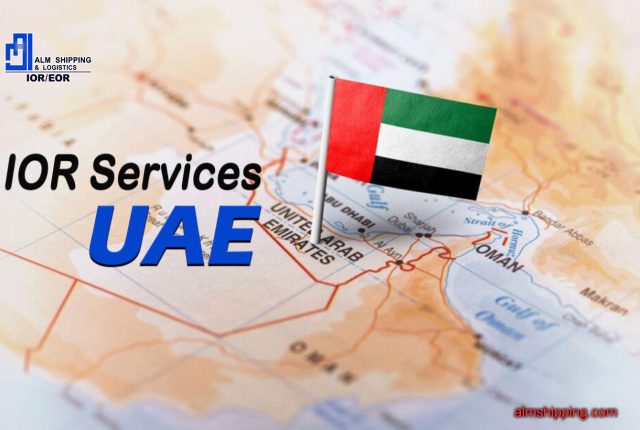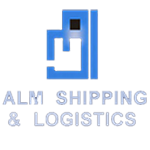
IOR vs EOR: A Roadmap for Successful Cross-Border Trade
IOR vs EOR-It is essential to comprehend the roles and responsibilities involved in international trade in today’s integrated global economy.
The Importer of Record (IOR) and Exporter of Record (EOR) are two essential functions. Despite their apparent similarities, these professions’ subtle differences are essential to a successful global business operation.
An Importer of Record (IOR) is…
The organization in charge of making sure that commodities are imported in accordance with the rules and legislation of the destination nation is known as the Importer of Record (IOR). This entails more than simply paying taxes and customs; it also entails making sure the imported items adhere to all environmental, quality, and safety standards.
Principal Duty of an Importer of Record (IOR):
1. Payment of charges and Taxes: The IOR is responsible for paying all customs charges, taxes, and fees.
2. Regulatory Compliance: The Importer of Record (IOR) makes sure the imported goods comply with all applicable laws and regulations in the nation of destination.
3. Documentation: All paperwork needed for customs clearance, such as import declaration forms, invoices, and permits, must be submitted by the Importer of Record (IOR).
4. Customs Clearance: The Importer of Record (IOR), who frequently collaborates with customs brokers and oversees all inspections, is a key player in the customs procedure.
An Exporter of Record (EOR) is…
Conversely, the Exporter of Record (EOR) bears the responsibility of guaranteeing that the exported commodities comply with the legal and regulatory framework of the nation of origin. More than just exporting commodities out of the nation is the responsibility of the Exporter of Record (EOR).
Principal Duty of an Exporter of Record (EOR):
Export Licenses: Getting the necessary licenses is one of the main responsibilities of the EOR.
Documentation: The Exporter of Record (EOR) is required to prepare appropriate documentation that complies with export legislation.
Adherence to Export Regulations: It is the Exporter of Record’s (EOR) duty to guarantee that the export complies with all applicable laws.
Product Classification: The EOR is in charge of accurately classifying products, frequently utilizing Harmonized System (HS) codes.
Differentiation Points
Legal Responsibilities
Importer of Record (IOR): Addresses the legal framework of the importing nation.
Exporter of Record (EOR): Concentrates on exporting nation laws.
Geographic Focus
Importer of Record (IOR): Operates under the destination nation’s laws.
Exporter of Record (EOR): Conducts business under the auspices of the nation of origin.
Highlighting ALM Shipping & Logistics IOR/EOR Services in the Rise of Specialized Third-Party Services
Specialized third-party services like ALM Shipping & Logistics have become indispensable partners in the complex world of international trade. IOR/EOR services are provided by ALM Shipping & Logistics in more than 100 countries, giving businesses worldwide a smooth trade experience.
Benefits of Using IOR/EOR Services from ALM Shipping & Logistics:
Expertise: ALM Shipping & Logistics IOR/EOR offers a wide global reach and the know-how to handle intricate trade rules.
Efficiency: ALM Shipping & Logistics IOR/EOR offers a streamlined, effective approach for both importing and exporting commodities. Time is of the importance in business.
Risk Mitigation: By minimizing the possible hazards connected to international trade, ALM Shipping & Logistics IOR/EOR’s expert services contribute to a more seamless transaction.
Why Due Diligence Is Important
Performing due diligence is crucial, regardless of whether you decide to work as your own Importer of Record (IOR)/Exporter of Record (EOR) or hire experts like ALM Shipping & Logistics. This entails investigating and evaluating the dependability and legitimacy of the organization that is taking on these important responsibilities.
Importance of the Importer of Record (IOR) and Exporter of Record (EOR)
Modern enterprises engaged in international trade must comprehend the complex functions of the Importer of Record (IOR) and Exporter of Record (EOR). Despite these apparent similarities, each function has unique duties, obligations under the law, and operational priorities.
Businesses can now choose to collaborate with specialized third-party services like ALM Shipping & Logistics, which provide a number of advantages including efficiency and knowledge in managing these intricate tasks. These kinds of alliances can give companies the resources and expertise they need to succeed in the increasingly interconnected world of international trade.
Visit ALM Shipping & Logistics IOR/EOR Services to learn more.






Leave a Reply